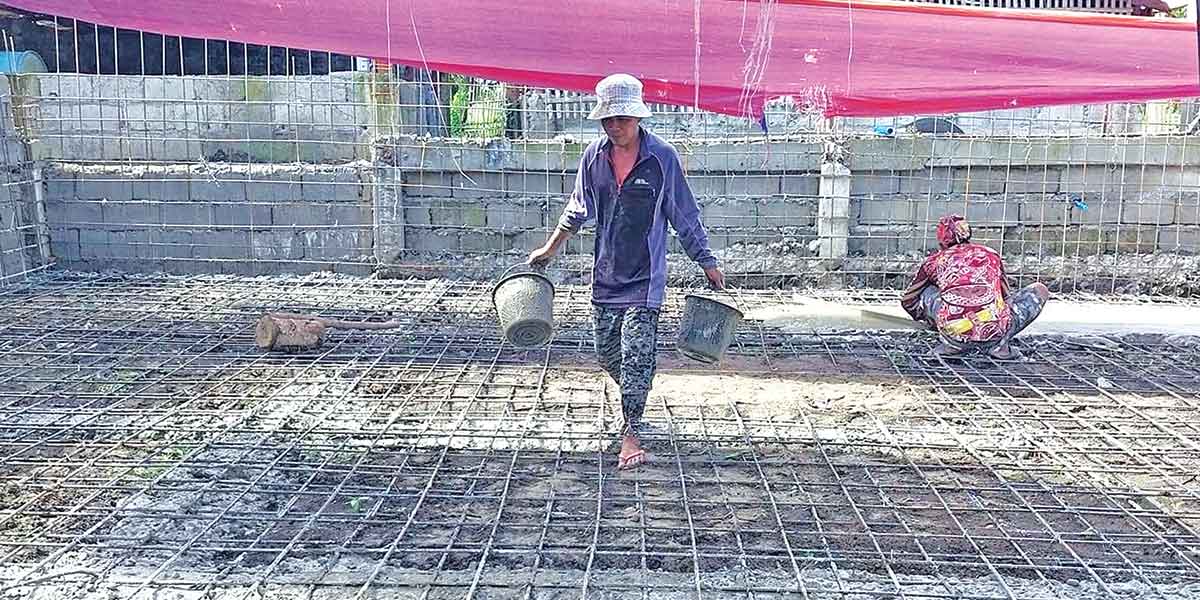By Engr. Carlos V. Cornejo
Computer games more often than not would be a source of distraction and bad habits to many of us especially to school kids who could end up playing video games all day and neglect their studies. But this awesome book “SuperBetter: A Revolutionary Approach to Getting Stronger, Happier, Braver and More Resilient – Powered by the Science of Games” by Jane McGonigal, who has a doctorate in performance studies specialized in video gaming, makes use of the “gameful” mindset we learn from video games and applying it to life’s many challenges. Dr. McGonigal used this gameful mindset to overcome a big adversity in her life when she suffered a concussion and was confined to bed and could not do the things she loved: jogging, reading and working in her office. She had suicidal thoughts in that ordeal but fought back against it by saying to herself, “I am either going to kill myself or turn this into a game.”
The principles of playing a video game can be applied to life. In a computer game, we turn a threat into an opportunity. Whatever is that computer game you are playing there is a threat of losing to an opponent but you try to turn it around and convert it into a victory. Second, in playing we learn to develop strategies as we experience losses. We can apply these two principles to life, first, by turning our failures and problems into an opportunity and second, by learning to develop strategies after experiencing failures. A failure in business or studies for instance can be an opportunity to try another type of business that will eventually turn out to be successful or choose another course in college that really fits your talent. The key is to not give up.
In playing a video game, we always have lots of patience when losing because we are enjoying the challenge. It’s time to apply that virtue of resilience to one’s life. In applying the second principle, we try to find out what particular area did we make a mistake, then try to develop strategies to overcome that mistake the next time around.
The author recommends 3 steps to further develop that gameful mindset through embarking on self-efficacy by keeping a score, search for power-ups and face the bad guy.
Self-Efficacy
The idea of self-efficacy is to develop skills and confidence in reaching goals and solving problems by keeping a score. Scores can come from simple tasks to tougher ones and develop those skills and self-confidence in our abilities along the way. In a video game, we get points when we defeat an enemy or capture a flag. In life, we should also assign points and keep a score when we accomplish daily activities that we find challenging no matter how small. Making your bed for example can be 2 points, fixing breakfast can be 4 points and completing an office or school report can be 22 points. As we acquire more points, we prepare ourselves to take on tougher challenges in life much like in playing a computer game when we would go up to an advanced level after having conquered the beginner’s stage.
Power-Ups
In computer games, power-ups are objects that adds temporary benefits or extra abilities to the player character. In life, these are activities that makes us happier, healthier and stronger so that we can take on life’s challenges with more energy. The four power-ups in life can be classified as physical, social, emotional and mental. Examples of power-ups are looking out the window (mental), hold your spouse’s hand for six seconds (social), eat ten walnuts, because they’re good for your brain (physical), send a text message to mom (social), listening to my favorite music (mental) and do ten push-ups even when exhausted (physical).
Facing the Bad Guy
In video games, the bad guys are those enemies that hinder us from reaching the more advanced level. In life, the author says the bad guys are the inner demons and bad habits that hamper us from achieving our goals. An inner demon could be that “Lord of Impossibility” character in us that tells us we are not good enough, or it’s impossible or it’s too difficult for us. Other bad guys as the author of the book would classify them could be villain foods. In her case she identifies them as pizza, soda, marshmallows and hot chocolate that ruins her health. In playing computer games, the bad guys make us come up with strategies to defeat them. In life, we should not run away from our bad guys or try to ignore them but come up with strategies to overcome them. To counter bad habits such as laziness, or lack of discipline for example we need a strategy to practice the virtues of hard work and diligence.
Life is full of challenges. Many would cower from these challenges because they find it hard to overcome and would rather waste time by playing computer games. The solution is to approach life like a computer game by accepting the challenge, enjoy the adventure and win in the end.
























